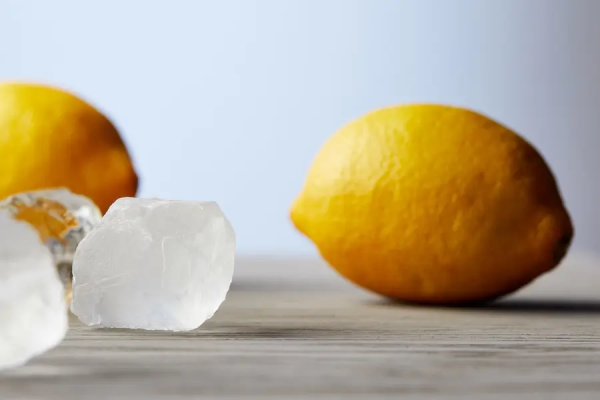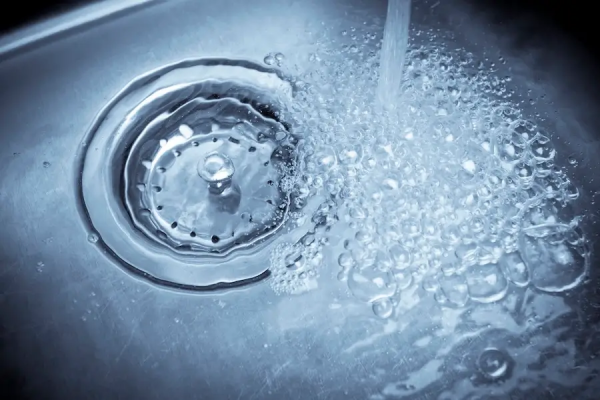Mr. Rooter Plumbing® shares helpful information on how to clean a garburator and how to know it’s a task you should prioritize!
|
Over time, garburators can become gross and smelly. Even though they’re designed to get rid of food waste, leftover particles can accumulate and become a breeding ground for mould and bacteria.
No one wants to deal with a smelly garburator in the kitchen, so as soon as you notice unpleasant odours, it’s time for a deep clean. But how? Keep reading to learn the steps for cleaning this essential appliance.
Step 1: Turn Off Power to the Garburator
Before any cleaning gets underway, make sure you’ve turned off the power supply to the garburator. You can pull the plug from its outlet under the sink or turn off the power at the breaker box. Attempt to turn on the garburator before you begin to double-check that the power is off!
Step 2: Remove Leftover Food Particles
Our garburators do a great job of grinding up food and flushing it down the drain. However, no appliance is completely perfect. Inspect inside the disposal to see if there are any leftover chunks of food that haven’t managed to make their way down the drain. If you spot any debris, remove it with pliers or tongs - not your fingers!
Step 3: Manually Clean Components
Despite cleaning your garburator regularly, you can sometimes still be dealing with foul odours. In that case, it’s possible that not all parts of your garburator are being cleaned properly. Now might be the right time to clean your garburator parts manually. In particular, focus on:
- Flaps: Create a paste with baking soda and water and scrub the top and underside of the garburator flaps with an old toothbrush.
- Splash guard: The splash guard, also known as the baffle, gasket, or plug, is a component inside the collar of the garburator. Pull it out of the drain and scrub away food, grease, and debris with an old toothbrush.
- Chambers and blades: Clean the chamber and blades of your garburator by following the cleaning and freshening tips below.
- Plumbing drain lines: Pour hot water down your drains every week to prevent debris from building up and creating both foul odours and blockages!
Step 4: Clean and Freshen Your Garburator
With all the food debris taken care of, it’s time to freshen up your entire garburator - even the parts you can’t see or touch. While there are plenty of garburator cleaning products on the market, you can make your own gentle, effective cleaning solutions using household ingredients. Here are some worthwhile options to try:
1. Ice Cubes, Baking Soda, and Lemon

You will need:
- 2 cups of ice cubes
- 1 tablespoon of baking soda
- 1 slice of lemon
Pour all ingredients into the garburator, turn it on, and let it grind with cold water until all the ingredients are gone. The ice cubes and baking soda act as a kind of scrubbing brush on the inside of your garburator to remove food debris, while the slice of lemon adds a pleasant scent.
Alternatively, just use lemon on its own! Slice a large lemon into wedges and feed each wedge into the garburator after turning it on. Grinding the rinds will clean the blades, while the lemon will add much-needed freshness.
2. Baking Soda and Vinegar
You will need:
- 1 cup vinegar (apple cider, white, malt, etc)
- ½ cup baking soda
Pour the baking soda into the garburator, followed by the vinegar, and leave it to fizz for 10 minutes. When 10 minutes have passed, run the hot water faucet and turn on the garburator until the mixture has disappeared.
3. Cold Water

You will need:
- A sink stopper
- Cold water from the faucet
You don’t always need citrus fruits or fancy cleaning products to give your garburator special cleaning treatment. Sometimes, all you need is water to clear away debris that could be hiding in your drains.
Insert the plug into your sink and fill it to around three-quarters full with cold water. Pull the plug, switch on your garburator, and leave it running until the water is gone. The water can do a great job of cleaning food debris off the grind chamber.
4. Ice and Salt
You will need:
- 2 cups of ice
- 1 cup of salt
Built-up debris can be hard to remove, but ice and salt could be the scrubbing solution you’re looking for. Pour two cups of ice down the garburator, followed by one cup of salt. Turn on the cold water faucet, then switch on the garburator. Keep running it until the ice is ground up.
5. Dishwash Soap and Vinegar
You will need:
- A squirt of dish soap
- 1 cup of vinegar
Put a plug in the sink drain and fill the sink halfway with water. Add a squirt of dish soap and one cup of vinegar. Take the plug out and run the garburator. Leave it operating for five seconds after the grinding noises even out.
How to Know It’s Time to Clean Your Garburator
If you don’t typically clean your garburator every day or week, there are a few telltale signs that it’s overdue for some attention:
- Persistent odours even after rinsing it
- Unusual noises like grinding, clunking, or rattling, which can indicate debris buildup
- Slow drainage to suggest that the garburator or connected pipes are blocked with food, grime, and grease
- Visible gunk or residue on the splash guard or grinding chamber
- You’re having to perform frequent resets
- It has been a long time since you cleaned it
- You’ve noticed performance issues
Something More Sinister?
Cleaning your garburator is an easy way to solve problems like smells and blockages. However, some signs can indicate that something more serious is occurring. It’s time to call your local garburator expert if you notice these signs:
- Frequent clogs, which can indicate internal damage, dull blades, or worn parts.
- Strange or loud noises, such as banging, whining, or metal grinding, which can point to something being loose, jammed, broken, or that the unit is failing.
- Water leaking, which can sometimes indicate that the internal seal has failed or there is a cracked casing.
- Constant resets – the motor is overheating, the unit is short-circuiting, or it’s failing.
- It won’t turn on – if there are no sounds and the garburator won’t respond at all, there could be an electrical problem, or the motor could be burned out.
- Reduced grinding power – your unit is struggling to break down even soft foods, which can suggest the blades or motor are worn.
Call Mr. Rooter Plumbing® for Help Cleaning Your Garburator
Have you tried to clean or repair your garburator to no avail? Mr. Rooter Plumbing® can help you keep your garburator clean and functional. Contact us today to learn more about our garburator repair, installation, and maintenance services!

